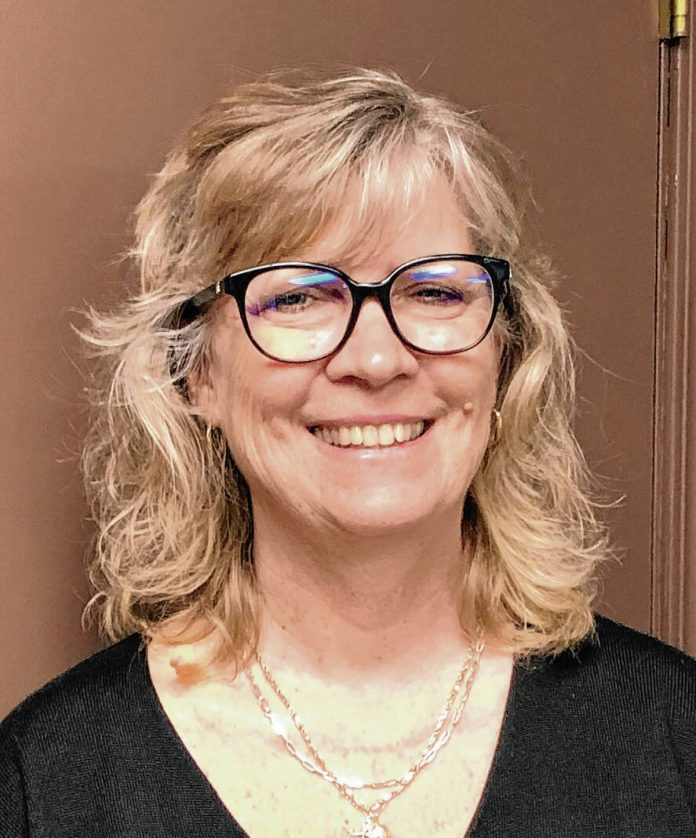
Hubbard
BROWNSTOWN — Jackson County could receive somewhere between $1.6 and $2.1 million to spend on providing new and expanding existing health care services over the next two years thanks to legislation enacted during the recently completed session of the Indiana General Assembly.
An official with the Jackson County Health Department delivered that message to county commissioners and county council members during their meetings earlier this week.
Office Administrator Karla Hubbard discussed some of the details of Enrolled Senate Bill 4, which includes $225 million statewide in 2024 and 2025 for local health department infrastructure and the provision of health programs.
During Wednesday morning’s county council meeting at the courthouse, Hubbard said if the county decides to opt in, it would receive a minimum of $539,725.50 and a maximum of $719,634 in 2024. In 2025, the minimum would $1,079,451, and the maximum would by $1,439,872.
Funding will be distributed on a sliding scale depending upon how many counties opt in.
The decision to opt in lies with county commissioners in each county, and on Tuesday, Hubbard discussed the program with county commissioners during their meeting, which also was at the courthouse.
Hubbard said there is a potential for some counties to opt out, but the state is not requiring counties to opt in.
During the planning process establishing the funding program, a committee of health officials from around the state established some funding requirements.
Hubbard said she had the opportunity to serve on that committee, which put together a list of core health issues county health departments should be addressing for their communities.
“The great news is we currently do all those things or we have partners within the county that do those things,” she said.
Hubbard said health department officials credit Kenneth Bobb, who was the county’s health officer from 1999 to 2016, for that.
Bobb, who died Oct. 21, 2021, always told his staff to do what was best for the community, and Dr. Christopher Bunce, the county’s present health officer, does the same, she said.
The list of core services to be addressed include communicable disease prevention and control; fatality review for child, suicide and overdose deaths; chronic disease prevention and reduction; childhood lead screening and case management; child and adult immunizations; tobacco prevention and cessation; trauma and injury prevention reduction; and maternal and child health.
Hubbard said if commissioners agreed to accept the funding, it would be used to increase existing or new partnerships within the community to provide education and address issues outside what the health department offers. Those partners could use the funding to provide more education about issues and the services they are already offering.
“So we don’t plan to recreate any of the wheels. We just hope to make them better,” she said.
Schneck Medical Center, Purdue Extension Jackson County, Jackson County United Way and Healthy Jackson County are just a few of the local organizations currently partnering with the health department.
“There are lots of opportunities to use that money in the county,” Hubbard said.
If a county chooses to opt into the program, up to 10% could be set aside for capital improvements to their local health department.
Hubbard said the health department would like to add two new staff members, one to focus on vital records and the second would a preparedness coordinator.
“We continue to be busier and busier with all the vital records we are required to maintain by the state,” she said. “We have always had a preparedness coordinator, but it has been a part-time person working on contract, so we would be able to hire a full-time person with benefits. We feel like that would increase capacity at our office.”
Hubbard said the health department is in favor of opting into the funding program.
“We are not asking you to do that today,” she said.
Counties opting into the funding program are required to provide a 20% match, Hubbard said.
“Our county is very generous with the money we receive,” she said, so the state funding would not require anymore county funds for the health department.
In one of the earlier studies about establishing the state local public health funding program, Jackson County was one of only three in state meeting the 20% local match funding requirement, Hubbard said.
In an answer to Commissioner Drew Markel’s concerns about commissioners opting in and then not having control of the funds, Hubbard said the health department would distribute the funds and do its best to judge who obtains funds.
“It does put the county in a position where whoever the money is handed out to, no matter what, it’s coming from Jackson County,” Markel said.
Hubbard said she would remain in touch with commissioners and council members throughout the process of budgeting the distribution of the funds.
“I will always be in touch with you about what we are doing because it’s a huge responsibility,” she said.
If commissioners decide to opt out of the funding, the state has historically has provided $57,000 in funding the Jackson County Health Department annually, and that would continue if the county doesn’t opt in, Hubbard said.
